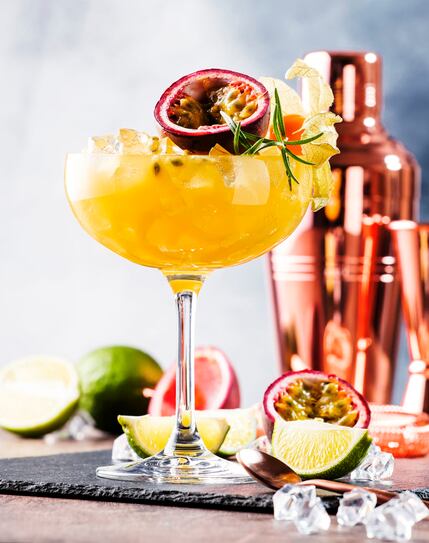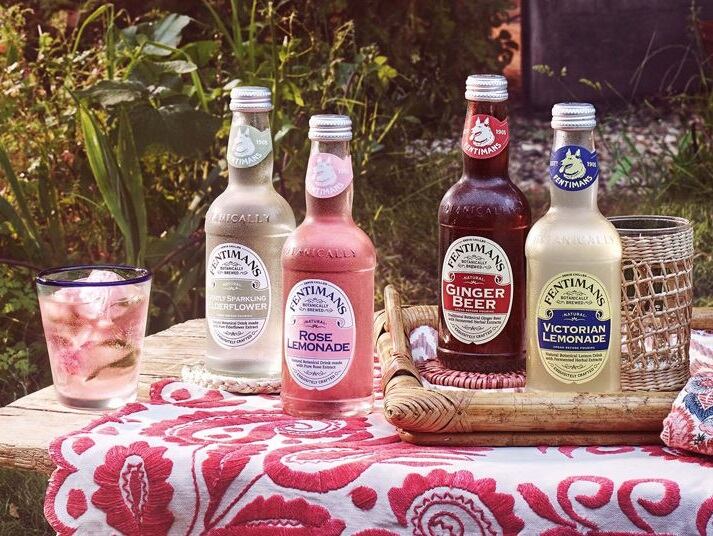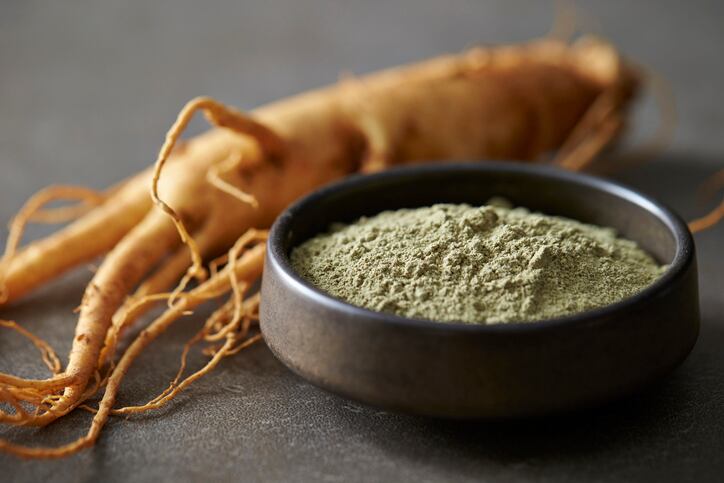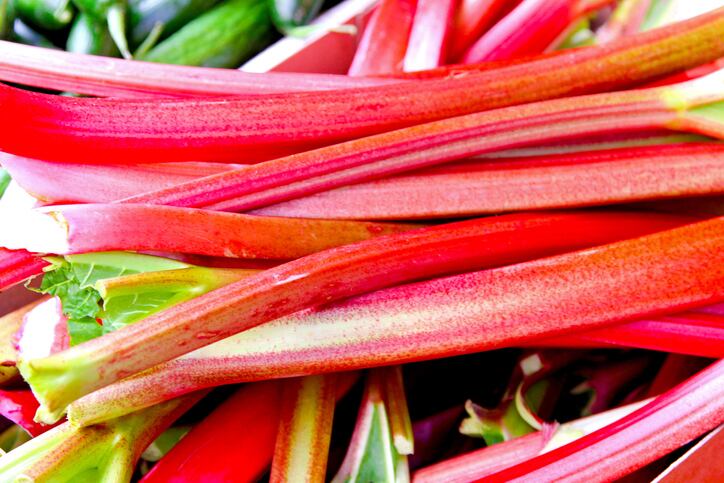While some trends – such as a move towards less sweet flavours – have been growing over the last few years; others have sprung onto the scene as a reaction to the COVID-19 pandemic.
“Consumer tastes are evolving fast, and the pandemic is already causing substantial changes in the way people behave and drink in the on-trade – so staying on top of the latest flavour trends is going to be crucial,” says the botanically brewed drinks maker as it outlines its predictions in the 2020 premium soft drinks and mixers report.
“These are five of the biggest developments we’ll be watching over the next twelve months”
1) Close to home
In the UK, nostalgia is renewing interest in traditional British flavours.
“With geopolitics being ever more unstable and the coronavirus crisis creating widespread alarm, more and more people are seeking refuge and reassurance.
"The desire to reaffirm national identity and self-dependence will lead to renewed appeal for nostalgic British flavours, driven both by pride and recognised comfort.”
What does this mean for new flavours? Expect to see more of rhubarb; dandelion and burdock; shandy; an exploration of British apple varieties; sarsaparilla; and marshmallow.
2) New takes on tropical
Tropical flavours like pineapple, mango and coconut have always been extremely popular. And yet their use to date has been limited to traditional and predictable combinations.

“These flavours evoke a sense of place—a factor that is very appealing to consumers who want to be transported to tropical climates during their drinking experiences. But things are starting to change.
"With new generations identifying themselves as ‘global citizens’ and the world shrinking due to global travel, geographical boundaries that have defined traditional flavour pairings are falling away.
“Tropical flavours are also changing as a result of their increasing availability and falling costs, and venues are thinking more creatively about their use in drinks.
"As a result, tropical flavours are becoming more integrated into western drinking traditions, products and ingredients, particularly at the premium end of the market.
"This can be seen most evidently in the continuing rise of the ‘Pornstar Martini,’ which blends passionfruit, vanilla, vodka and prosecco; a myriad of global flavours that is curiously not questioned as unusual.”
In the alcoholic beverage category, expect to see more tropical-based spritzes and aperitifs. Elsewhere, keep an eye out for the premiumisation of tropical flavours; as well as new tropical spirit pairings.
3) Keep it light
Savoury flavours and hard seltzers are going to influence the UK over the next 12 months, predicts Fentimans.
“Many consumers are seeking to reduce the amount of sugar they consume in their day-to-day diets. Initially the market’s solution was flavour parity, replicating sweetness through natural sugar alternatives.

“But the reduction in sugar intake is also prompting a preference for light, savoury and vegetal flavours ahead of sweet ones.
"For drinks brands it is no longer enough to simply claim to be low in sugar: flavour profiles have to validate this claim, and that carves out a market for lighter and more neutral flavoured drinks and categories."
Meanwhile, hard seltzers —alcoholic flavoured sodas—are flourishing in the US, with on-trade sales reaching $1.2bn in 2019, having attracted 7.5 million new drinkers over the course of the year. Expect to see this start to influence the UK: vodka, fresh lime and soda continues to grow in popularity.
Keep an eye out for more and more flavoured and alcoholic sodas; as well as fruit teas and infusions; flavoured waters; and the return of vodka.
4) New acidities
Increased interest in fermentation and drinks like kombucha is raising the profile of sour flavours over sweet. While this is not a new trend, 2021 looks set to be the year these profiles really make a move into the mainstream.
“As consumers become more conscious of looking after their health and particularly their immune systems, the fermentation category continues to grow at pace. The global Kombucha market is forecast to be worth just over £1bn in 2020, with annual growth of 29% predicted for the next six years.
“Now that it is a mainstream rather than niche product, it is likely to start influencing flavour perception in the on-trade. As a consequence, consumers are becoming more adept with the flavour profile of fermented products and the unique acidities created by the bacteria-led fermentations found in products such as Kombucha, kefir, sour beers and certain organic wines.
“Sour drinks and flavours have also built assimilation with digestive health and play very well to the macro trend for healthier drinking and eating. Consequently, we expect characteristically sour flavour profiles to increase and diversify. The use of common citrus fruit like lemon and lime to provide sour elements to cocktails and mixed drinks could become rivalled by new acidic building blocks found in Kombucha, sour beer, kefir and vinegars.”
Expect to see more fruit-based vinegars; kombucha cocktails; kefir cocktails; sour beer; and natural and organic wines.
5) Tastes good for you
Growing recognition of the importance of nutrition in our physical and mental wellbeing is changing the flavour landscape. This includes ‘mood foods’ and guilt-free experiences.

“A new group of ‘mood foods,’ whose natural ingredients claim to help reduce stress and relax, energise or invigorate us, are growing in popularity.
"Within this segment, flavour credentials are secondary to a product’s holistic benefits—and some unusual flavour profiles are emerging into the market as a result.
"In a similar context, natural home remedies are returning, as some people seek plant-based natural alternatives to medical problems.
“The term ‘adaptogens,’ a key plant category with both physical and mental health benefits, should begin to appear more and more as consumers seek these ingredients as part of their daily routines. In the on-trade, more and more venues are seeking to provide experiences that are healthy and guilt-free, so we expect to see these flavours integrated into menus and products more frequently.”
Expect to see flavours and inspiration from ingredients such as such as cactus; aloe vera; chaga; mushroom; yerba-mate; ginseng; and adaptogens.
The full report can be found here.
Pictures: getty/baloncici; getty/5PH; Fentimans; getty/mano.




